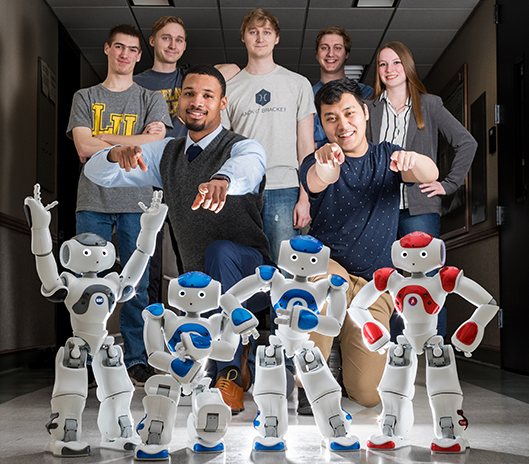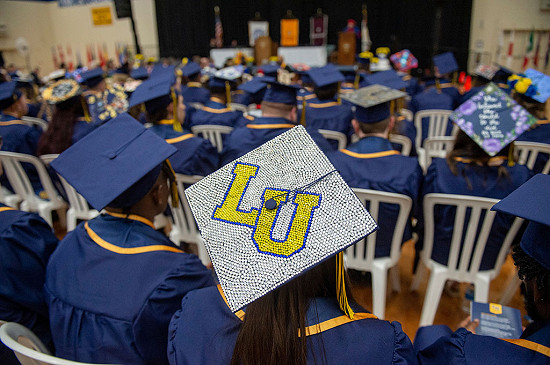Learn to stay a step ahead of cyber criminals. Experiment with a 3D printer and robotics. Work with a Faraday Cage. Refurbish scrapped computers in our lab. Lakeland's Computer Science program is an all-encompassing foray into the ever-changing world of computers and how they work.
At Lakeland University, you won't focus on just programming, database, or system analysis. You'll learn it all with multiple classes that span all disciplines.

Computers have become such an essential part of our lives that most of us no longer think about them. We expect that they will be there – streamlining our workplace, accessing our information and providing our entertainment. That’s where computer science graduates come in: they create and maintain computer and information technologies so the rest of us can live better lives.
Lakeland University's Computer Science degree enables students to position themselves “inside” the already-accomplished computer revolution. Students are presented with a practical background in programming and data management, as well as the skills that will allow them to devise and implement computer solutions to real-world problems.
At the upper levels of coursework, students use electives to guide and focus their own studies, preparing themselves for careers in applications programming, information technology and systems management.
One of Lakeland's most popular classes is Forensics, which involves the discovery and recovery of data – often as it relates to crime and cybercrime. This type of expertise is more and more valued, particularly in the areas of law enforcement and corporate law.
That's where a Faraday Cage comes in. In a Faraday Cage, a computer is shielded from Wi-Fi signals and therefore can't be accessed or tampered with remotely. It's called a “computer seizure.” Information can't be retrieved or erased. It's a vital tool in legal cases and the use of a Faraday Cage allows computer evidence to hold up in court.

*Data provided by Job Center of Wisconsin's Occupational Employment & Wage Statistics for Data Scientist.
There’s more than one way to get a college education and Lakeland offers them all. Lakeland University students have access to a variety of pathways, and each one can be customized to meet your needs. Since our founding in 1862, Lakeland University has been a leader in finding ways to help students make their dreams come true.
Cooperative Education is all about hands-on learning outside the classroom. Students learn more by doing. They gain real-world knowledge and earn academic credit for hands-on professional work experience — and coursework is centered around these real-life experiences, situations and career goals.
Lakeland students explore their interests and, when they graduate, feel confident they will find a career in which they are passionate.

You may apply at any time as Lakeland University operates on a rolling admission basis with 6 start dates throughout the year. Applications will be reviewed until about two weeks before the start of each term.
Once your application is received, your Lakeland University admissions counselor will be in touch.
*Exceptions to the above admission criteria may be granted for students with a cumulative GPA range from 1.75 to 1.99 if the academic experience that resulted in the less than 2.0 GPA was more than two years ago. Furthermore, typically students with a cumulative GPA range from 1.50 to 1.75 will only be considered if the poor academic performance experience that resulted in the less than 2.0 GPA was more than five years ago. Students receiving an exception will be admitted conditionally.
Professor of Mathematics
